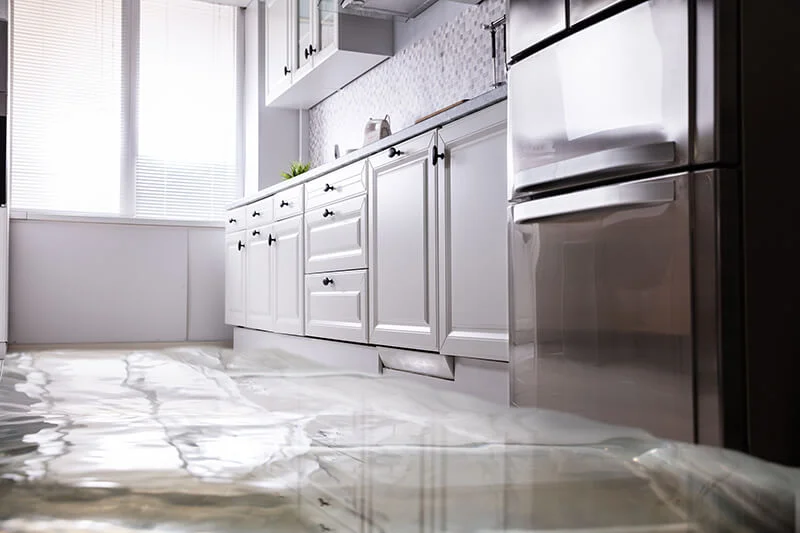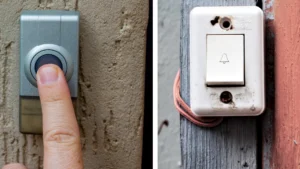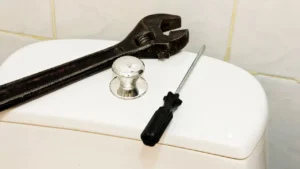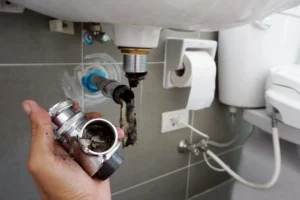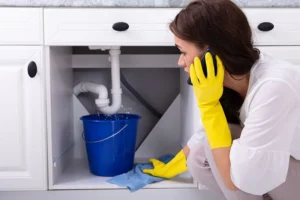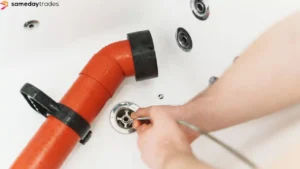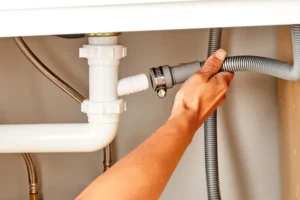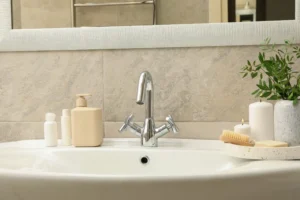Experiencing a house flood but don’t know what caused it?
Home flooding is quite common in Adelaide due to faulty pipelines or heavy storms during the rainy season. That’s why it is important to know the reasons that usually lead to this situation, and we have got you covered with our list of the 7 common causes of home flooding in Adelaide.
Want to know more? Keep reading then!
7 Common Causes Of Home Flooding In Adelaide
Here’s a list of things that are generally responsible for home flooding in Adelaide:
1. Due To A Pipe Break
A broken pipe is the most common cause of flooding in Adelaide. Frequent temperature fluctuations or water freezes can cause serious damage to old pipes, causing them to burst them in the worst cases.
Even small leaks in the pipes pose threats of future flooding; hence, you shouldn’t overlook the signs. That said, here are some typical indicators of leaking pipes:
- Increased mildew and mould infestation
- Murky smell in the rooms
- Wet spots on ceilings and walls
- Cracks in the foundation
- Fast running water meter
- Increased water bill
2. Due To A Clogged Sewage Line
Clogged sinks, showers, and toilets can hinder the outflow of water from your home, causing it to pool. If multiple drains get choked, the water backflow can wreak havoc on your property, so call the professionals when needed. And if there’s a problem outside your property line, inform the local council so that they get it fixed.
3. Due To Backed Up Gutters
Since gutters are located outside the home, they can get clogged due to leaves, twigs, and debris accumulation. This can lead to water back up, eventually flooding up your basement.
Moreover, if you don’t see anything in your basement, then chances are that the has water started pooling up in the foundation instead. This causes further damage to the brickwork, walls, and driveways.
4. Due To Roof Leaks
A leaky roof may not seem like a huge issue capable of flooding your home, but it can be a menace to your floor and ceilings. Multiple leaks, especially the big ones, can create a murky stink in rooms and flooding, so you should promptly make the repairs. Your insurance company could cover these expenses.
5. Due To Faulty Drains
Another significant contributor to home flooding is a faulty drainage system. That’s because broken drains expose the fixtures, walls, and flooring to flood damage. This can be prevented by waterproofing the foundation of the home properly during construction.
6. Due To Appliance Malfunction
Often poorly connected household appliances like washing machines, heaters, and dishwashers can cause flooding in your home. In that case, a timely inspection of all the major connections to determine if a repair is needed. This will help you detect leakages and other damages to avoid flooding and keep your family safe.
7. Flash Flooding
Certain locations in Adelaide are more prone to experience natural flooding. That’s why homeowners should stay aware of the weather fluctuations and closely follow rain forecasts to remain prepared for such situations.
Also, specific terrains receive more rainfall during the rainy season than other parts, resulting in flash flooding. Therefore, you should landscape your abode accordingly and keep weather plans in place to deal with such emergencies.
Ways To Prevent Home Flooding In Adelaide
Here are a few tips to conveniently stop your home from flooding:
1. Fix The Drainage System
You should check your drainage system frequently for leaks or damages to reduce the risks of home flooding. This can be done by calling plumbers to inspect the whole system and making sure that the drains are in prime condition. Plus, burst pipes are pretty common in cold weather, so do watch out for them.
2. Waterproof The Foundation
Lawn, gutters, and sewer lines can drip due to inadequate waterproofing during the construction of the house. So, as a rule of thumb, new homeowners should be careful and get their foundations waterproofed efficiently to reduce the damage caused by groundwater.
Additionally, the basement flooring should be sealed optimally to prevent water from entering during heavy rainfall or flash flooding.
3. Clear The Drains And Gutters
Another way to keep the flood water at bay is by religiously cleaning the house drains and gutters. Don’t allow any debris to enter your fixtures or pipes and keep them clean at all times.
Speaking of which, people often dispose of oils, fats, tea leaves and other kitchen wastes in their sinks that can clog the drain, disturbing the outflow of water. Similarly, it’s common to flush toilet paper rolls and tampons in toilet pots that choke the sewage line. All these habits can lead to clogged drains, which can increase the chances of home flooding, and therefore should be avoided at all costs.
4. Inspect The Appliances
As we mentioned that haphazardly connected appliances can create leakages. Hence, you should inspect your household appliances and check all the sockets and water fixtures they are connected to.
Furthermore, if there are malfunctioning devices, you should get them fixed without any delays. For instance, a broken washing machine outlet pipe can cause water to flood out in the room instead of passing through the drain. So, you should replace the burst pipe with a new one.
5. Hire A Plumbing Service
Lastly, if you feel nothing seems to be working, and there is some serious damage responsible for flood water in your home, then hire a quality plumbing service. The professionals will take up the job and find the root cause of the issue.
Moreover, they have extensive plumbing knowledge and can fix the problem within a few hours. From burst taps to broken rainwater tanks, they’ll help you save your home from flooding.
Final Words
And with that, we’ve reached the end of our brief guide on the factors responsible for home flooding in Adelaide. It is a serious issue and can cause a lot of property damage if not handled properly, so make sure that you take appropriate measures in such circumstances.
With that, we’ll wrap up for the day. Until next time, take care!

